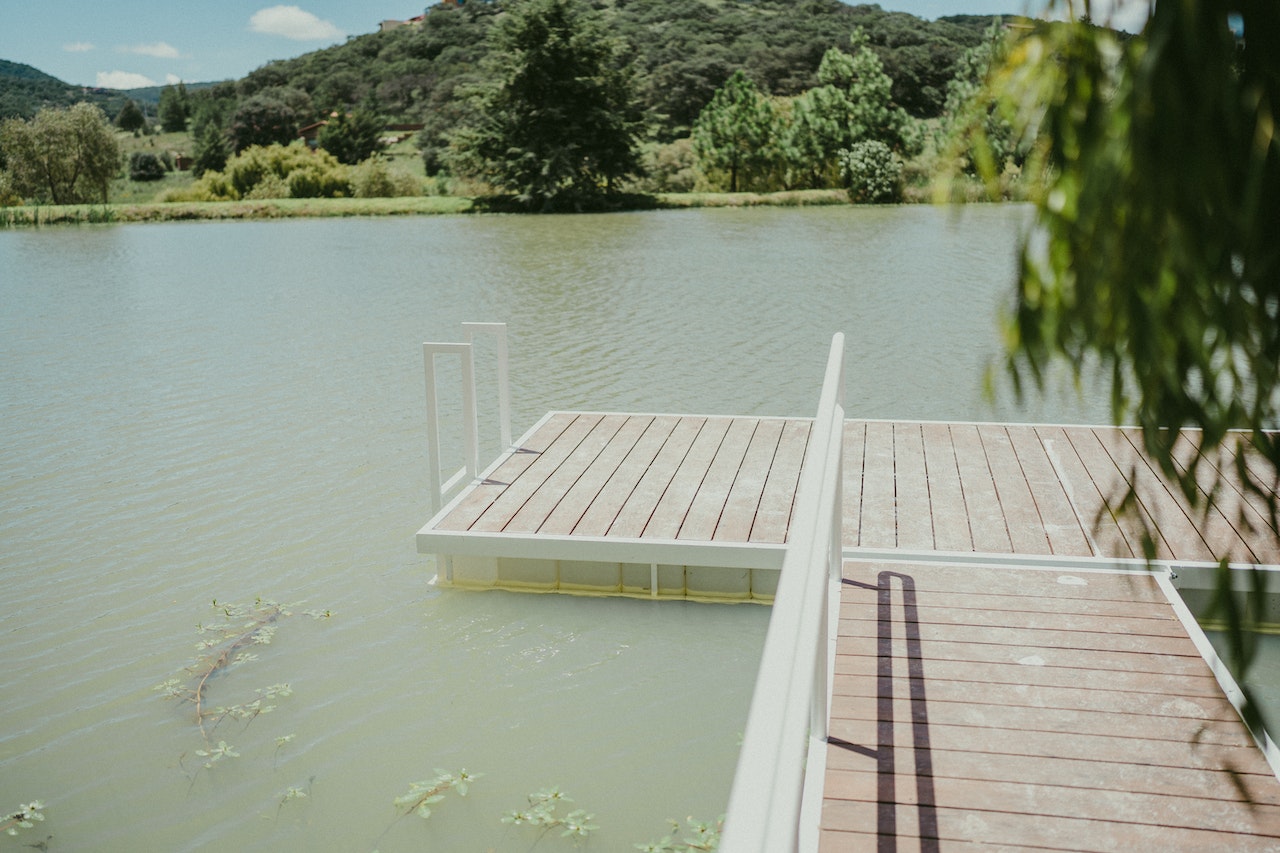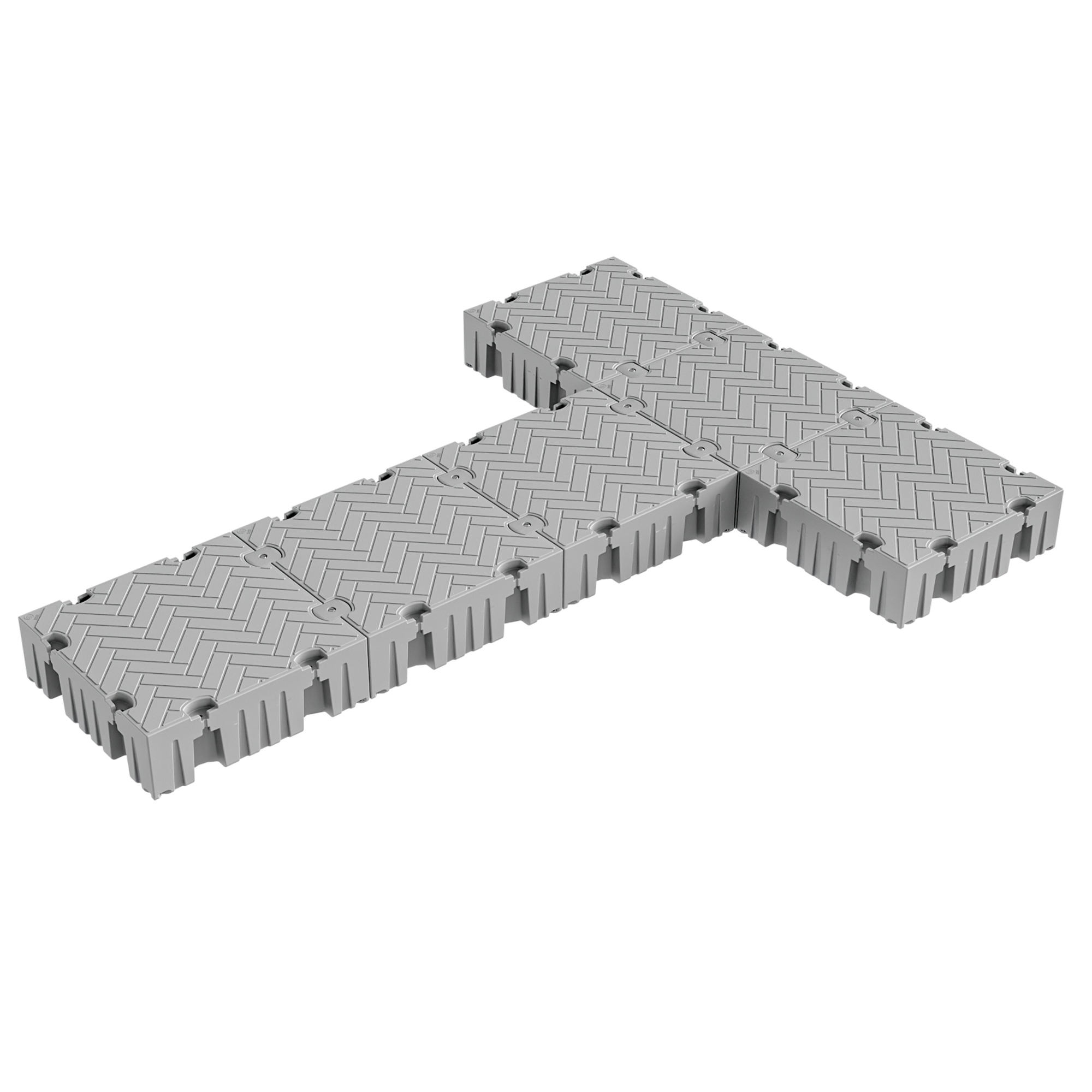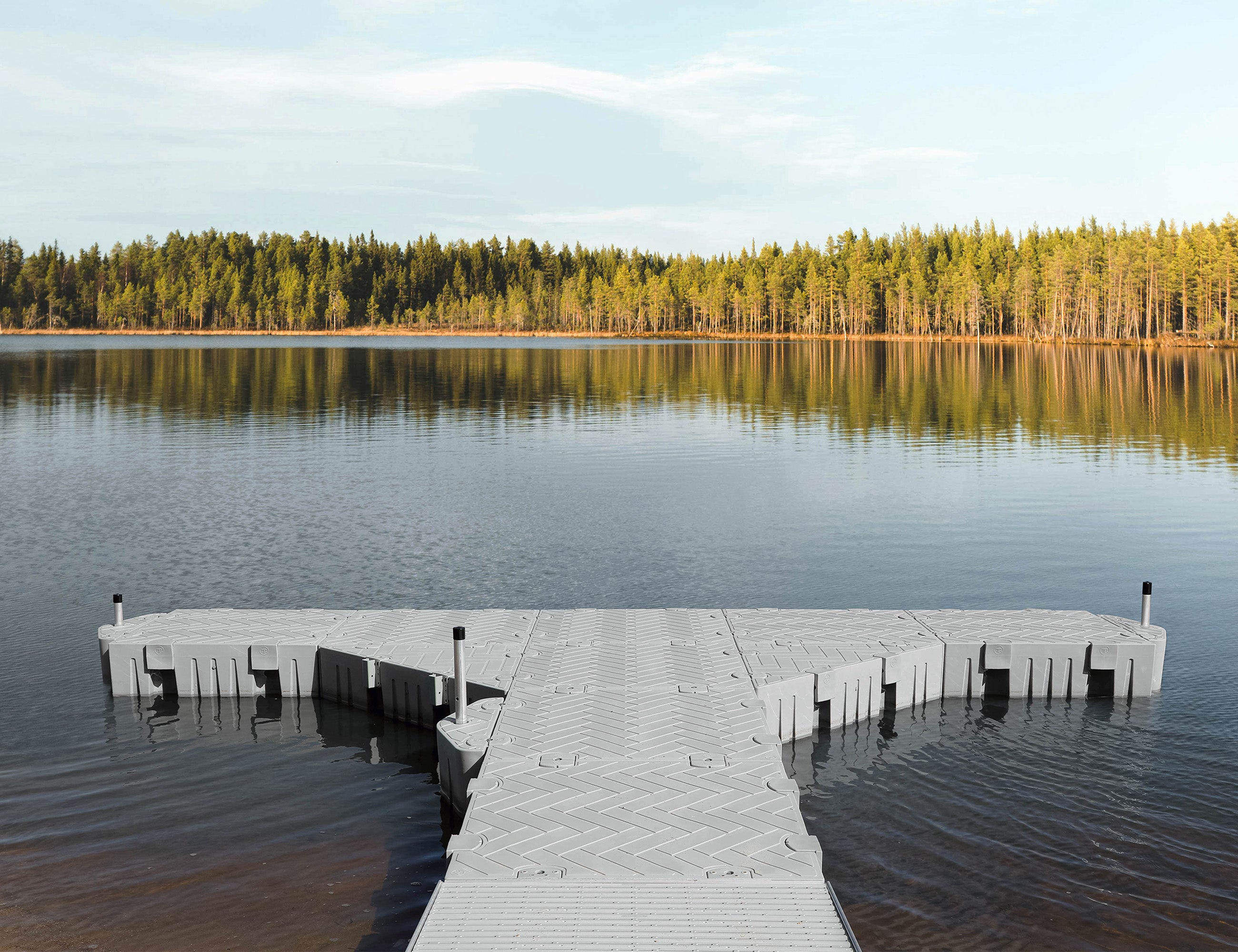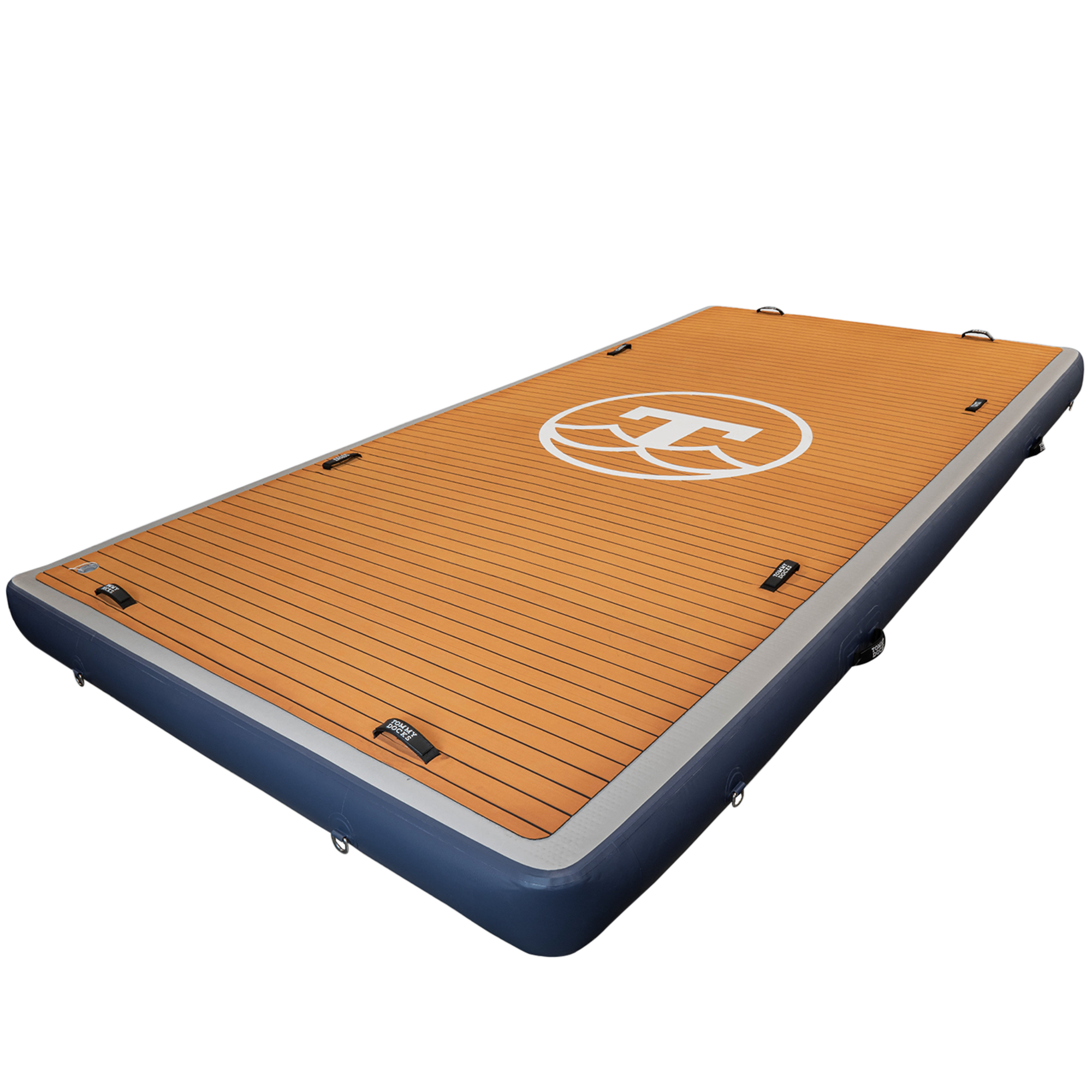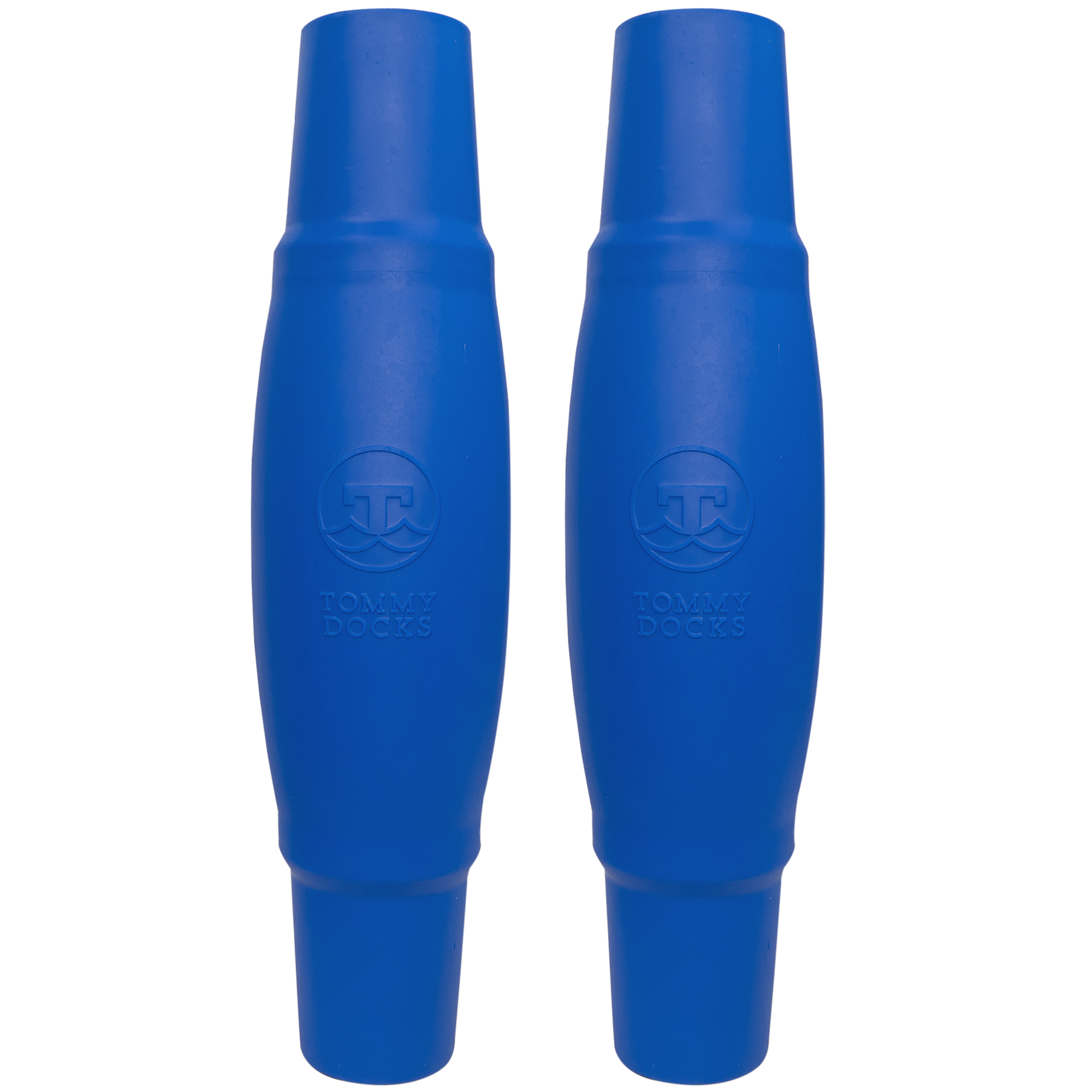Types of Composite "Fake Wood" Decking Options And How They Stack up to Real Wood
Just as most of us love the natural tones of hardwood floors inside our homes, there’s an undoubted appeal to real wood for decked areas. The idea of installing “fake wood” can be a little off-putting. But with advanced types of “fake wood” now available, could it be time to reevaluate how we feel about that?
Composite decking, AKA fake wood, is not one thing. Several options are available, and some compare more favorably with wood than others. Let’s take a look at these options and whether you should choose composite wood for your next decking project.
Composite Decking Defined
Composite decking is designed to be a straight swap for traditional wood decking boards. If you get the right type, you can use them to construct freshwater docks. According to theconstructor.org, there are three main types:
- Solid composite decking
- Hollow composite decking
- Capped composite decking
Solid Composite Decking
This type of fake wood is a solid, heavy-duty product. It is made from a mixture of plastic and wood products or plastic and mineral fillers.
At Tommy Docks, we only offer engineered composite decking made without foam or wood fillers. It’s a truly robust product that is fully waterproof - perfect for your new home dock.
Hollow Composite Decking
This lightweight form of fake wood is suitable for low-impact applications. It is not suitable for docks or decks but can be used for siding or cladding.
Capped Composite Decking
Capped composite decking has a synthetic coating that is textured and colored to look like wood. Internally, there is a mixture of polypropylene and wood material. This makes it more robust than hollow composite decking, but it doesn’t have the strength of solid composite decking.
Composite vs. Wood Decking
This brief comparison shows that there is a clear winner in the world of fake wood - solid composite decking. That’s why Tommy Docks is proud to offer composite decking as a great option for our customers. Our composite decking outshines the leading brand in terms of:
- Strength-to-weight ratio
- Maximum deflection at midspan
- Thermal movement
Tommy Dock’s composite decking also comes with a 25-year removal and replacement warranty that includes ground and water contact. There is no better choice of composite decking out there - but how does it compare with traditional wood decking materials?
Cost
Composite decking is more expensive upfront than wood options, such as cedar. However, this initial cost needs to be offset against the time and expense of yearly maintenance and the expected lifespan of the product.
Maintenance
Composite docks are designed to be virtually maintenance-free. All you will need to do is clean them as needed with soapy water, a soft brush, and a power washer. Additionally, they are not susceptible to mildew and won’t get stained.
Wood decks are a different story. Depending on the size of your dock, refinishing wood decking can take 1-2 days and cost up to $200, according to thespruce.com.
Additionally, natural wood docks can be affected by the weather and the action of the water. If they get wet and then dry out, they can crack and start to produce splinters. The sun and ambient temperatures can also cause wood to warp over time.
It takes regular maintenance to keep these issues at bay. It’s important to factor them in if you have pets or children who will be using the dock regularly. You may find that rather than saving you money, a wood dock may actually cost you more in the long run.
Warranties
At Tommy Docks, all our cedar dock packages come with a one-year warranty. As cedar is a natural product, you can expect that it will deteriorate over time. With excellent maintenance, including yearly refinishing, it could last for up to 15 years.
However, choose a composite dock, and we will provide a 25-year manufacturer’s warranty. That’s how much confidence we have in the PVC composite decks we supply. And the best part is that you won’t have to lift a finger or pay a dime in maintenance.
Appearance
Composite docks materials are available in a limited range of styles. Currently, there are two available from Tommy Docks - Ridgway Gray and Woodland Brown. Both feature a textured wood grain finish and an anti-slip surface.
Another advantage of composite decking is that it will not fade. It is unaffected by UV rays or microbes, which can alter the appearance of natural products.
Having said all that, this is where we’ve got to hand it to wood. You can constantly update the look of your decking by staining it a different color each year. There are many shades of wood stain available, so you’re only limited by your imagination.
So if you’re happy to put in the work, a wood deck will reward you with a beautiful natural look.
Eco Credentials
It’s oversimplifying the issue to say that wood or composite is either good or bad for the environment. Wood is a natural material, and it removes carbon dioxide from the atmosphere. However, it needs to be resealed with fossil fuels on a yearly basis and has a shorter lifespan.
Composite decking is made from fossil fuels. However, it lasts longer and needs very little maintenance, and you may be able to recycle it. The key is buying it cut to size to reduce waste, and that’s exactly what we offer at Tommy Docks.
The Verdict: Composite vs. Wood Decking Options
Both wood and composite decking options have pros and cons. If you love the natural look and are happy to put in the maintenance, cedar docks are a great option.
But if you prefer something more low-maintenance with a longer lifespan, then composite decking is the way to go. With Tommy Docks’ 25-year warranty, you can have confidence that it will look great and perform well for decades to come.
Browse our range of stationary dock options to find the right product for you today!

